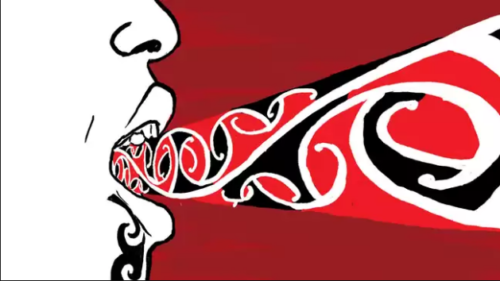
With the uptick in interest in Maori language recently, there has also been an interest in understanding who speaks the language. A large correlation matrix based on electoral and Census data can tell us a great deal. In this article, Dan McGlashan (author of Understanding New Zealand) tells the statistical story of Maori speakers.
There are two different ways of telling the story of the Maori-speaking demographic. The first is by comparing them to the population as a whole, and the second is to compare to them to the general Maori demographic. This article will do both because it is worthwhile to look at the two separately.
The correlation between being a Maori speaker and being a Maori is 0.99. Essentially this means that virtually everyone who speaks Maori in New Zealand is ethnically Maori. It also means that all of the correlations with being a Maori speaker will be close to the respective correlations with being a Maori, so that any differences between the two groups will be subtle ones (but hopefully instructive).
Curiously, the correlation between median personal income and being Maori (-0.48) was exactly the same as the one between median personal income and speaking Maori, but if we go down a level we can see a wider pattern in this data. For the most part, the voting patterns of Maori speakers mirrored that of Maoris, but there are patterns in the differences.
The average Maori speaker is slightly less likely than the average Maori to have voted Labour in 2017 (0.56 to 0.58). This is a small difference and it remains a fact that the average Maori speaker is strongly inclined to vote for the Labour Party. This is mirrored for National: the average Maori speaker is slightly more likely than the average Maori to have voted National in 2017 (-0.72 to -0.74).
The average Maori speaker was also slightly more likely to vote Green than the average Maori. The correlation between voting Green in 2017 and being a Maori speaker was -0.12, compared to -0.14 for the correlation between voting Green in 2017 and being Maori.
But if being a Maori speaker made one slightly more inclined to vote for the Greens, it made one slightly less likely to vote for New Zealand First. The correlation between voting New Zealand First in 2017 and being a Maori speaker was 0.35, compared to 0.38 for being Maori.
Because the Greens and National are the parties that tend to attract the most well-educated people, we can guess from this that the average Maori speaker is slightly better educated than the average Maori. Indeed, this proves to be the case.
The correlation between being a Maori speaker and having a university degree was -0.42 for all of Bachelor’s, Honours and Master’s degrees and -0.38 for a doctorate, whereas the correlation between being Maori and having a university degree was -0.45 for both Bachelor’s and a Master’s degrees, -0.46 for an Honours degree and -0.41 for a doctorate.
This tells us that the average Maori speaker is slightly better educated than the average Maori, despite being more poorly educated than the New Zealand average.
The correlations with age brackets tell us that the average Maori speaker is a bit older than the average Maori. The correlation between being in the 0-4 age bracket and being Maori was 0.82, whereas the correlation between being in that bracket and being a Maori speaker was 0.78. Conversely, the correlation between being in the 65+ age bracket and being Maori was -0.48, compared to a correlation of -0.47 between being aged 65+ and being a Maori speaker.
The correlations with the various industry types tells us in which industries we are more likely to find Maoris who speak Maori.
The correlation between working in the education and training industry and being Maori was 0.43, but the correlation between working in that industry and being a Maori speaker was 0.48. This tells us that a very high proportion of the Maoris working in that industry speak te reo (possibly because they work in whare whananga or similar).
On the other side of the equation, Maoris in some professions were less likely than average to be a Maori speaker. These were usually working-class professions. The correlation between working in the transport, postal and warehousing industry and being Maori was 0.47, whereas the correlation between working in this industry and being a Maori speaker was only 0.41. From this we can conclude that very few of the Maoris working in transport, postal and warehousing are Maori speakers.
In summary, this suggests that the average Maori speaker is a Maori who is a bit older and better educated than the Maori average.
*
Dan McGlashan is the man with his finger on the statistical pulse of New Zealand. His magnum opus, Understanding New Zealand, is the complete demographic analysis of the Kiwi people.
